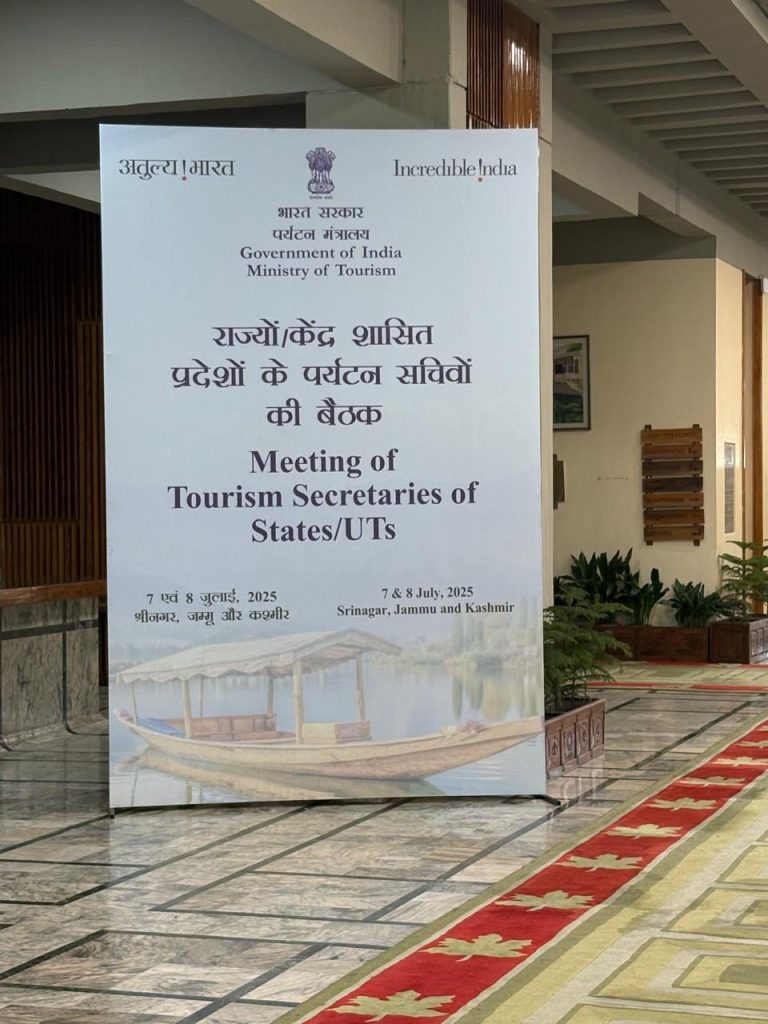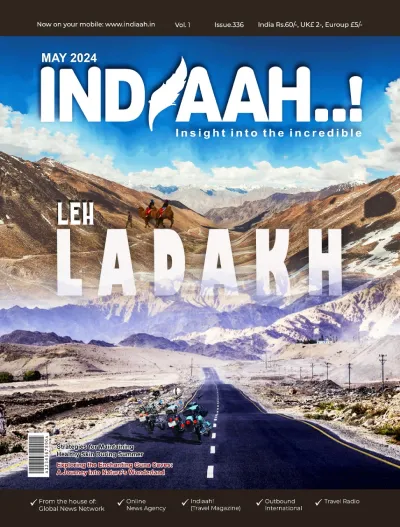
In a landmark move that blends policy vision with symbolic outreach, the Union Ministry of Tourism has brought together tourism secretaries and directors from over 20 states and Union Territories at the scenic Sher-i-Kashmir International Conference Centre (SKICC) in Srinagar. The two-day national-level meeting, taking place on July 7 and 8, aims to align national and regional efforts in redefining India as a world-class tourism hub.
This high-level congregation is not just a policy workshop it is a strategic statement. By choosing Kashmir as the host, the Government of India sends a powerful message of unity and confidence. In the words of a senior official, “Kashmir represents the soul of India. Holding this meeting here is a reaffirmation of our solidarity with the people of Jammu & Kashmir and a signal to the world that India stands united.”
The central theme of the conference is collaboration how states can pool their strengths to position India as a premium global travel destination. Discussions are centered around building infrastructure to international standards, amplifying collective promotional campaigns, and streamlining investments through public-private partnerships. The Ministry has also reiterated its commitment to financially support destination development initiatives that demonstrate scale, sustainability, and innovation.
Secretary-level representatives from key tourism states such as Rajasthan, Tamil Nadu, Gujarat, Kerala, and Goa are participating in strategic sessions alongside Union officials. The agenda includes evaluating the progress of flagship tourism circuits, reviewing the upcoming national tourism policy draft, and exploring ways to enhance India’s visibility across global travel platforms.
One of the focal points of the meeting is the development of integrated infrastructure that supports both leisure and niche segments such as eco-tourism, film tourism, adventure tourism, and cultural heritage trails. The government also plans to roll out a dedicated facilitation framework to help states execute large-scale tourism projects efficiently.
Beyond policy, the venue itself plays host to a larger narrative. Post the Pulwama terror attack and recent disruptions, the return of such a prestigious national event to the Valley reflects a deliberate step to restore confidence in Kashmir’s tourism ecosystem. The gathering serves not only as a professional forum but also as an endorsement of Kashmir’s peaceful revival and its enduring place in India’s tourism tapestry.
As the event concludes on July 8, key takeaways are expected to include a shared roadmap for inter-state cooperation, clarity on central funding mechanisms, and a unified Brand India message that speaks of diversity, resilience, and global ambition.

